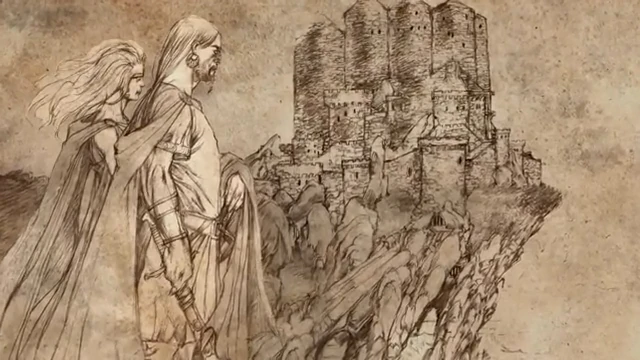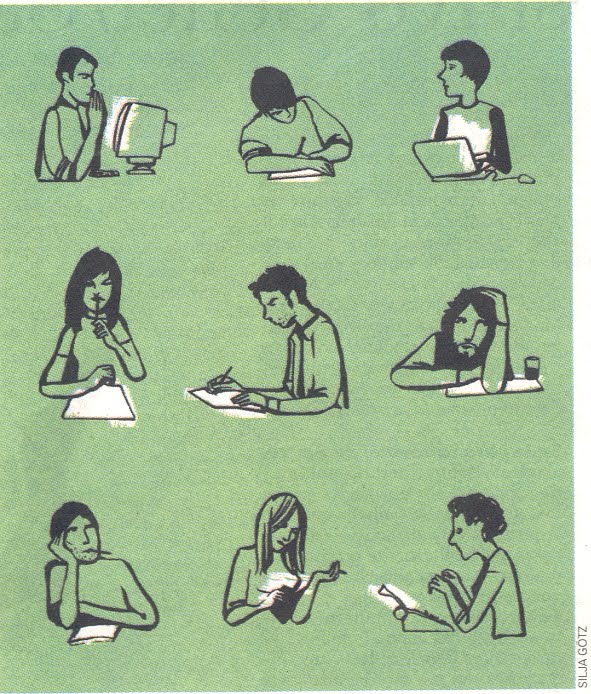 |
capa do libro orixinal
goodreads.com |
no verán de 2010,
Stanley McChrystal, comandante
en xefe en Afganistán mofouse de que nos EEUU os civís mandaran sobre os militares EEUU e, como consecuencia, o presidente
Barack Obama pediulle
que dimitira. tal mostra de insolencia causou estrañeza. pero resultou clarificador
saber como McChrystal acostumaba xestionar outros asuntos menores. dise que
nunha ocasión, o seu xefe de gabinete informouno que debía asistir a unha cea
en París cos aliados da OTAN - nom por que fraqueasen e tivese que apuntalar o
seu apoio para continuar a guerra senón porque, tal e como o expresou o xefe de
gabinete, 'a cea vai co cargo, señor'. McChrystal fíxolle unha figa, contestándolle, 'e isto vai co
cargo?'.
se comparamos casos de descaro, o xeneral McChrystal palidece en
comparanza con outro xeneral,
Douglas MacArthur.
durante a guerra de Korea, MacArthur era a lei, en cuestións importantes e en
cuestións menores. desafiou e rifou en público co presidente
Truman defendendo a guerra nuclear. cando logo se reuniron na Illa Wake, MacArthur chegou ao extremo de chegar primeiro
e logo tardar un chisco en permitir aterrar o avión presidencial. así o comandante en xefe de MacArthur aterrou semellando ser o seu subordinado.
cando explicou máis tarde o relevo de MacArthur Truman dixo: 'despedino por nom respectar a autoridade presidencial, nom o despedín por
ser un maldito fillo de puta, inda que o é, porque iso nom contravén a lei no
tocante a xenerais'. Truman aproveitou para meter, comprensibelmente, as súas pullas.
perfectamente podía ter dito tamén que MacArthur era un auténtico botaporela.
mais iso nom é unha acusación exótica: os botaporelas abundan na
historia e na vida pública. ademais de xenerais botaporfóra, pensemos en
figuras contemporáneas como o ex-presidente italiano
Silvio Berlusconi,
o venezolano
Hugo Chávez ou o iraniano
Mahmoud Ahmadinejad. pensemos en Donald Trump, o exixente crítico
de música pop
Simon Cowell, ou o narcisista
Mel Gibson. atopamos botaporelas todos os días nas novas
por cable, onde os locutores nom paran de interromper aos convidados, e tamén
na radio, onde se desperdicia tempo con comentaristas que nom fan máis que
mentir e insultar. isto deteriora o debate público, tan vital para unha sociedade
democrática saudábel, pero para máis
inri
os comentaristas que se sobreexcitan nas ondas fanse ricos e famosos, e tamén o
pasan bomba.
todo isto formula un asunto filosófico máis amplo:
en que consiste ser un botaporela? a resposta
nom é obvia, a pesar de que a miúdo, nas nosas vidas persoais, vémonos
atrapados entre xente para a que nom existe mellor definición. os botaporelas
nom simplemente se atopan na historia ou nos altos cargos mais en case todas
partes - no traballo, no bar que nos gusta, no deporte, no instituto, no noso grupo
relixioso, ou no noso círculo de amizades; e incluso, para os máis desafortunados, na propia casa ou na familia máis próxima.
fagamos como fagamos
para librarnos deles, a miúdo a verdade é que temos que soportar reunións que,
para a maioría de nós, representan grandes dificultades e esforzo persoal. o botaporela
nom só é unha persoa irritante máis, é unha persoa absolutamente molesta -
molesta abondo para provocar que se desencadee en nós a impotencia, o medo, ou
a ira. para empeorar as cousas, poderiamos nom ser quen de entender exactamente
porque alguén nos pode chegar a perturbar tanto. pode que o único do que esteamos
seguros é que 'botaporela' é a palabra repugnante e tamén apropiada para esta
persoa en concreto.
mentres que á maioría de nós lle viría ben algún consello no tocante ao
manexo dos botaporelas, nom chegamos moi lonxe sen ter respondido á pregunta
inicial: en que consiste ser un botaporela?. de nom haber máis opcións, unha
boa resposta - unha boa teoría do 'botaporela' - sería intelectualmente útil. proporcionaríanos os conceptos que precisamos para acabar pensando ou
dicindo a razón pola que algunha xente nos chega a molestar tanto.
iso, á súa vez, e esa
é a idea, abriría unha ventá pola que mirar aspectos máis fondos da nosa moral
e da nosa vida social. comprobariamos o que revelan os botaporelas sobre a condición
social humana e a razón da súa ubicuidade, en todas as sociedades. a idea é
que unha boa teoría sería útil no día a día. entender os botaporelas que nos
deteñen podería axudarnos a pensar dun xeito construtivo sobre a mellor maneira
de manexalos. poderíamos ter máis claro cando é mellor plantarse ou cando é
mellor ignoralos - paga a pena loitar por ter iso máis claro.
a nosa teoría defende que o botaporela exhibe
unha característica da moral que os filósofos tratan de comprender desde os
tempos de
Jean-Jacques Rousseau. o botaporela rexeita
escoitar as nosas queixas, lexítimas, e por iso representa un reto á idea de
que todos e cada un de nós temos dereito a ser recoñecidos como iguais desde o
punto de vista moral. isto explica por que o botaporela é tan irritante, ao
revelar a grande importancia que concedemos ao recoñecemento dos demais en
ámbitos sorprendentes das nosas vidas. comprender ben isto contribúe a manexar mellor os botaporelas.
a
clave é comprender porque estamos tan tentados a loitar nos
termos que eles propoñen: loitamos polo noso propio recoñecemento moral. tamén
exploraremos con máis fondura cuestións máis básicas sobre a vida social
humana: por que os botaporelas son basicamente homes? teñen realmente a culpa
de ser botaporelas? por que unhas sociedades producen máis botaporelas que
outras? son certos estilos de capitalismo especialmente propensos á produción
de botaporelas e, consecuentemente, ao declive social? e, finalmente, podemos,
en último termo, facer as paces nom só co botaporela que nos toca en sorte e tamén coa
condición humana, na os botaporelas nom fan máis que florecer?
en que consiste ser un botaporela?
a nosa teoría é basicamente esta: unha persoa conta como botaporela
cando, e só cando, sistematicamente se permite gozar de privilexios especiais
nas relacións interpersoais en base a un arraigado sentido de ter dereito a facer o
que lle pete que o inmuniza contra as queixas do resto (ao ser os botaporelas, nunha enorme proporción homes, usamos o masculino a propósito.
consideramos que as mulleres tamén poder ser botaporelas. pensemos en
Ann Coulter). a nosa teoría, polo
tanto, ten tres elementos básicos: en termos interpersonais e cooperativos, o botaporela:
1, crese co luxo de gozar de privilexios especiais e abusa deles de
xeito sistemático;
2, faino por crer que ten dereito a facelo; e
3, é inmune, por crerse con dereito, ás queixas do resto.
así, por exemplo, o botaporela é a persoa que habitualmente nom garda a
fila. ou que frecuentemente interrompe unha conversa. ou que saca a man pola
ventá para cambiar de carril ao conducir. ou que insistentemente subliña os
defectos doutra persoa. ou que é extremadamente sensíbel a sentirse ofendido
mentres nom se decata de que el é borde co resto. unha persoa insensíbel -
un simple 'cretino' - podería sentirse chamado a gozar de 'privilexios especiais'
en tales relacións interpersonais. o que distingue ao botaporela é o xeito de
actuar, as razóns que o impulsan a actuar dun xeito arrogante e abusivo. o botaporela
actúa convencido de que
é especial,
que as normas xerais de conduta nom se lle aplican (...)
Aaron James
Knopf Doubleday Publishing (2012)
tradución por @xindiriz
xindiriz@gmail.com
1 a theory
in the summer of 2010, Stanley McChrystal,
US army general and Afghan war commander, reportedly trashed the US civilian
military leadership, in effect forcing President Barack Obama to ask him to
resign. the display of disrespect was striking, but more telling were the
details about MacChrystal's handling of smaller matter. according to one story,
McChrystal was once apprised by his chief of staff that he was obliged to
attend a dinner in Paris with NATO allies -if not to shore up flagging support
for the war, then simply because, as the chief of staff put it, 'the dinner
comes with the position, sir'. McChrystal held up his middle finger, retorting,
'does this come with the position?'.
for brazen disregard, General McChrystal
pales in comparison to another general, Douglas MacArthur. during the Korean
War, MacArthur was a law unto himself, in matters both big and small. he
quarreled defiantly in public with President Turman, agitating for nuclear war.
in their eventual confrontation at Wake Island, MacArthur went so far as to
arrive first and then order the president's approaching plane into a holding
pattern. MacArthur's commander in chief would thus arrive on the landing strip
appearing to be MacArthur's supplicant.
in explaining why he subsequently relieved
MacArthur of his command, Truman said, 'I fired him because he wouldn't respect
the authority of the president. I didn't fire him because he was a dumb son of
a bitch, although he was, but that's not against the law for generals'. Truman
was arguably pulling his punches. he could easily have called MacArthur an
asshole.
that would not be an exotic charge:
assholes abound in history and public life. aside from runaway generals, we
might think of such contemporary figures as former Italian president Silvio
Berlusconi, Venezuelan president Hugo Chávez, or Iranian president Mahmoud
Ahmadinejad. we might think of the self-important developer-entertainer Donald
Trump, the harsh pop music critic Simon Cowell, or the narcissist actor Mel Gibson.
assholes are found daily on cable news, where hosts repeatedly interrupt their
guests, and also on talk radio, where airtime is given to commentators who
thrive on falsehood and invective. even as this demonstrably degrades the
public debate so vital for a healthy democratic society, overheated
commentators get rich and famous, while clearly having a really great time.
all of this poses a larger philosophical
question: what is it for someone to be an asshole? the answer is not obvious,
despite the fact that wer are often personally struck dealing with people for
whom there is no better name. assholes can be found not simply in history and
high public office but almost anywhere -at work; in our chosen club, sport,
school religious group, or circle of friends; and even, for the truly unlucky,
in the home or immediate family. try as we might to avoid them, we often simply
have to manage encounters that come, for most of us, with great difficulty and
personal strain. the asshole is not just another annoying person but a deeply
bothersome person -bothersome enough to trigger feelings of powerlessness,
fear, or rage. to make matters worse, we may be unable to understand why
exactly someone should be so disturbing. we may feel certain only that
'asshole' is a suitably unsavory name for this particular person.
while most of us could use advice in
asshole management, we cannot get far without an answer to our initial
question: what is it for someone to be asshole? if nothing else, a good answer
-a good theory of the asshole- would be intellectually interesting. it would
give us the concepts to finally thing or say why some people disturb us so.
that, in turn, would ideally open a window into deeper aspects of morality and
social life. we would see what assholes reaveal about the human social
condition and why assholes are everywhere, in every society. ideally, a good
theory would be practically useful. understanding the asshole we are stuck with
might help us think constructively about how best to handle him. we might get a
better sense of when the asshole is best resisted and when he is best ignored
-a better sense of what is, and what is not, worth fighting for.
according to our theory, which we will
present shortly, the asshole exposes a deep feature of morality that
philosophers have sought to understand from the time of Jean-Jacques Rousseau
to this day. the asshole refuses to listen to our legitimate complaingts, and
so he poses a challenge to the idea what we are each to be recognized as moral
equals. this explains why the asshole is so bothersome, by revealing the great
importance we attach to recognition in unexpected areas of our lives. in later
chapters, we will suggest that a clearer understanding of this helps with
asshole management. the key is understand why we are easily tempted to fight on
the asshole's terms: we are fighting for moral recognition in his eyes. we will
also explore larger, more basic questions about human social life. why are
assholes mainly men? can assholes be properly blamed? why do some societies
produce more assholes than others? are certain styles of capitalism especially
prone to asshole production and thus social decline? and, finally, can we
ultimately make peace not only with the given asshole but also with a human
social condition in which assholes flourish?
what is it to be an asshole?
our theory is simply this: a person counts
as an asshole when, and only when, he systematically allow himself to enjoy
special advantages in interpersonal relations out of an entrenched sense of
entitlement that immunizes him against the complaints of other people (because
assholes are by and large men, we use the masculine pronoun 'he' advisedly. we
will suggest that women can be assholes as well. for the time being, think of
Ann Coulter). our theory thus has three main parts. in interpersonal or
cooperative relations, the asshole:
1, allows himself to enjoy special
advantages and does so systematically;
2, does this out of an entrenched sense of
entitlement; and
3, is immunized by his sense of
entitlement against the complaints of other people.
so, for example, the asshole is the person
who habitually cuts in line. or who frequently interrupts in a conversation. or
who weaves in and out of lanes in traffic. or who persistently emphasizes another
person's faults. or who is extremely sensitive to perceived slights while being
oblivious to his crasness with others. an insensitive person -a mere 'jerk'-
might allow himself to so enjoy 'special advantages' in such interpersonal
relations. what distinguishes the asshole is the way he acts, the reasons that motivate him to act in an abusive and
arrogant way. the asshole acts out of a firm sense that he is special, that the normal rules of conduct do not apply to him
(...)











